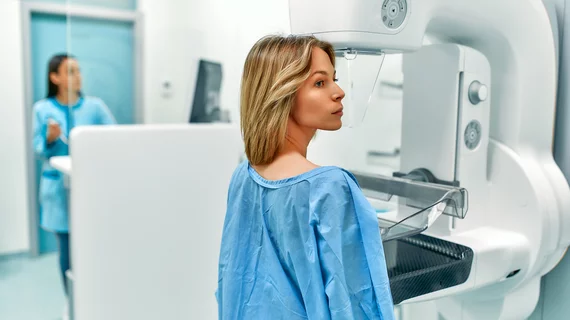FDA temporarily halts mammography services at critical access hospital, claiming they posed ‘serious risk to human health’
The U.S. Food and Drug Administration temporarily halted mammography services at a critical access hospital, claiming they had posed “serious risk to human health,” according to an announcement shared Tuesday.
Phelps Memorial Health Center in Holdrege, Nebraska, has since completed the necessary remedies, including notifying any women who underwent breast imaging between April 5, 2021, and March 21 of this year. The American College of Radiology also restored PMHC’s accreditation July 20, the FDA said in its announcement.
The hospital has worked closely with both organizations to complete its action plan, a spokesperson told Radiology Business Wednesday.
“Phelps Memorial Health Center is dedicated to providing high quality, compassionate care to our patients,” PMHC said in an emailed statement. “Our response team has been working diligently to answer patient questions and help schedule appointments with partner imaging centers for re-scans, the costs for which are being covered by Phelps Memorial.”
The issue dates back to January, when the FDA initiated an Additional Mammography Review for exams spanning the previous seven months. Officials said the time period covered when PMHC performed breast imaging exams without first obtaining accreditation from the college.
ACR informed the hospital on March 21 that it had failed the test, with 6 of 30 submitted clinical cases not meeting image evaluation criteria, including some “severe” deficiencies. The college revoked the facility’s accreditation on April 4, forcing the Food and Drug Administration to take action.
“Based on the information obtained from the ACR concerning the reasons for the revocation of the facility’s accreditation, the FDA determined that the facility’s practice posed a serious risk to human health, and that in order to protect the public health, on April 5, 2023, declared the facility’s MQSA certificate to be no longer in effect,” the agency noted.
Phelps Memorial said it takes the matter seriously and it is working to ensure this will not occur again.
“Going forward, we will be taking critical steps to prevent this from happening in the future including implementing new training protocols, competency checks and updating our procedures,” the hospital said. “Our patients’ health remains our number one priority and we are committed to ensuring our patients and the surrounding community receive exceptional care.”

